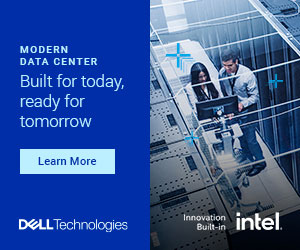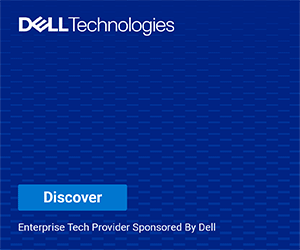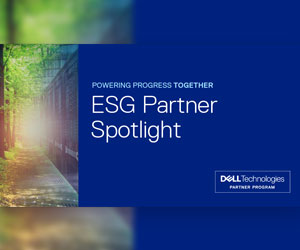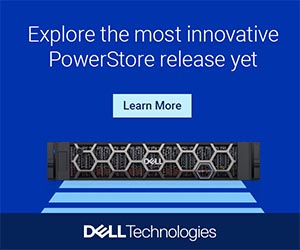Today’s enterprises are being challenged with the need to modernize their IT infrastructure to keep up with growing data storage and traffic demands of today’s workloads – while also preparing for the future.
To this end, the market has begun to shift towards the next-gen disaggregation and composability of compute, storage, and networking infrastructures as customers move to a software-defined-data center (SDDC). To address this shift, Dell Technologies has launched an innovative new software product called SmartFabric Storage Software (SFSS).
What is SmartFabric Storage Software?
Technically speaking, SFSS enables end-to-end automated and integrated NVMe over IP fabrics connecting servers and storage targets using TCP. Put a bit more simply, what Dell has created here is a software tool here that simplifies and automates end-to-end configuration set up and management of servers and storage arrays that are connected to an IP fabric.
SFSS implements standard NVMe calls so that server and storage arrays can be easily discovered and added to an IP fabric automatically – without manual administration. Not only does this relieve significant pressure on the IT department, but it also allows seamless scalability.
How does SFSS benefit your customers?
While there are plenty of benefits to implementing SFSS, here are five major sell points to consider:
1. Purpose-built protocol
Non-volatile Memory express (NVMe) is a protocol designed to replace the SCSI protocol and allows end users the maximum benefit from Solid State Drives (SSDs). Today, the NVMe protocol is widely used across modern servers and storage systems with SSD drives throughout various industries. It has also been extended to work across a SAN with NVMe/TCP.
2. Standards-based centralized discovery controller for NVMe/TCP
SFSS is a standards-based, stand-alone containerized software package that enables an end-to-end automated and integrated NVMe-oF Ethernet fabric running over TCP. The key functions of SFSS are policy-driven to help automate NVMe-oF storage service discovery, end-point registration, connectivity, and zoning services.
3. Lower CAPEX and OPEX costs
If we take a look at the numbers, the network infrastructure CAPEX cost of an NVMe/TCP Ethernet fabric is nearly 25% the cost of a similar Fibre Channel configuration on a $/GB of bandwidth basis. From an OPEX perspective, SFSS helps automate most of the normal manual configuration steps for NVMe systems in an end-to-end configuration. What’s more, there’s simplified management for Day 2 operations with VMware vCenter and Dell Open Manage Network Integration (OMNI) application.
4. Lower latency and higher throughput
NVMe as a protocol delivers lower latency than legacy storage communication protocols. It also provides higher throughput due to its multi-queue architecture. When SFSS is deployed across an Ethernet-based SAN, NVMe/TCP provides comparable transport performance when tested against Fibre Channel and outperforms iSCSI.
5. Fully tested and validated across Dell NVMe server and storage portfolio
This is an integral centerpiece of one of the industry’s first end-to-end NVMe/TCP solutions, including Dell EMC PowerEdge running VMware ESXi, Dell EMC PowerStore, and a centralized discovery controller the Dell EMC SmartFabric Storage Center. The entire solution has been qualified by E-labs to enable your customers to deploy – with confidence – an end-to-end validated solution. What’s more, everything is backed by a comprehensive set of deployment and support options that covers the entire lifecycle of the enterprise IT investment.
An End-to-End NVMe IP SAN Solution from Dell Technologies
IT organizations need storage connectivity solutions that not only meet their current infrastructure demands but will also provide the foundation to meet demands in the future. NVMe-based IP networks provide new storage interconnect solutions that can scale efficiently while also reducing costs leveraging standards-based IP networking technologies.
With SmartFabric Storage Software, these new connectivity solutions also introduce automation capabilities, thereby providing your customers with a fully modern, end-to-end storage solution that is tested and validated across compute, storage, and networking platforms.
Learn more about SmartFabric Storage Software.





















